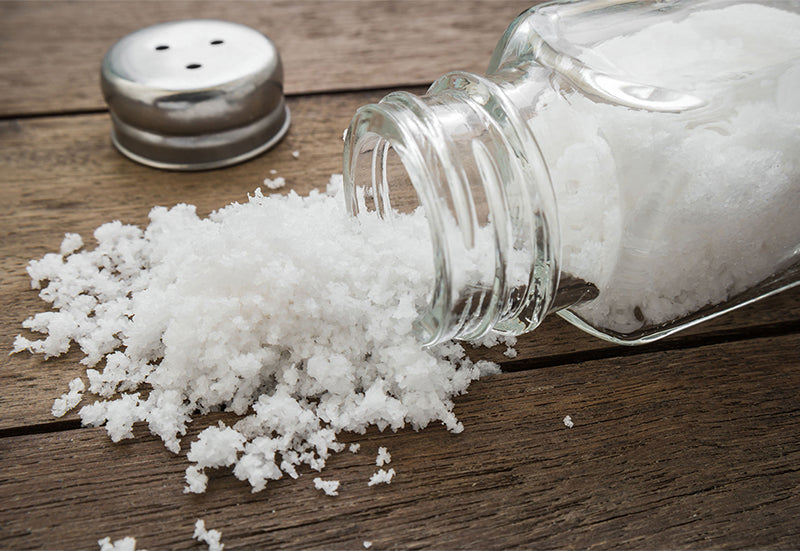Hard to believe, but true: Europe is an iodine deficiency zone! The average daily requirement for iodine is 150 μg [1] - which about 40% of the population fail to reach [2].The importance of an iodine supply that meets the our daily needs is supported by various studies and publications on the subject, which are repeatedly carried out by important institutions such as the Robert Koch Institute (RKI), the German Society for Nutrition (DGE), the Federal Institute for Risk Research (BfR), the World Health Organization (WHO) and many others. Iodine or iodine deficiency is therefore an important topic that concerns us all!
What do we need iodine for anyway?
Iodine is essential in our body for the production of thyroid hormones. These fulfil important tasks in metabolism, ensure normal growth, contribute to bone health, support brain development and many other vital processes [3]. An undersupply of iodine can therefore lead to serious health problems, such as reduced physical and mental performance and increased susceptibility to infections. A prolonged iodine deficiency results in the insufficient product of thyroid hormones. The result: a pathologically enlarged thyroid gland, also known as "goiter" [4].
Especially in children and adolescents the iodine supply plays a central role, because the thyroid hormones influence the development and growth of bones and brain. An undersupply can lead to brain development disorders with learning and memory difficulties as well as structural changes in the thyroid gland [5]. During pregnancy and breastfeeding, women also have an increased need for iodine and an insufficient supply can cause growth deficits, congenital goiter and neurological damage in the newborn [6].
Why we don’t get enough
Iodine is a so-called essential trace element - it cannot be produced by the body and must be supplied through food [4]. An adequate supply of iodine would not be a problem if our food contained sufficient iodine. Plants can absorb the water-soluble trace element from the soil via their roots and can therefore contribute in principle to an adequate supply of iodine. In many European countries, however, the soil is very low in iodine, as the iodine is leached into rivers and from there into the sea. It is therefore not surprising that iodine is especially enriched in food from the sea, such as fish and algae [2, 7].
There are also other sources of iodine: meat, milk and eggs – but only because the trace mineral is added to animal feed [3]. However, even a diverse diet without additional iodine supplementation covers only about half of the recommended daily intake at the very most [8].
The solution: iodized salt?
Luckily, iodized salt was introduced in the 1980s: table salt is on the one hand a good carrier for iodine and on the other hand is consumed daily. However, salt also has two disadvantages: Firstly, the use of iodized table salt is voluntary both in households and in the food industry - so its supply cannot be guaranteed, especially if predominantly processed, ready-made meals are consumed [2].
Even more problematic is the fact that too much salt intake is not healthy, as it can increase blood pressure, put strain on the kidneys and, at very high intakes, increase the risk of stomach cancer [9].
So why take the detour via animal foods or salt when there are great alternatives in the form of plant-based supplements.
Iodine from plants
Many iodine products on the market use synthetic iodine (like potassium iodide). But there is also a better solution: Our natural iodine! It’s derived from kelp algae and thus 100% natural and suitable for vegetarians and vegans. The iodine from kelp algae is also highly bioavailable - which means it is optimally absorbed and metabolized by the body.
And it gets even better: not only is seaweed like kelp a true superfood from a nutritional point of view, they are also very sustainable food sources if they come from organic cultivation – like our product does. Furthermore, unlike products from other manufacturers, we do not use any additives such as magnesium stearate, titanium dioxide or carboxymethyl starch. With 150 µg iodine per capsule, 100% of the recommended daily amount of iodine is covered. Iodine deficiency? No problem with our natural iodine capsules!

Forever young? How Resveratrol Influences the Mechanisms of Aging
Triphala - All Good Things Come in Threes